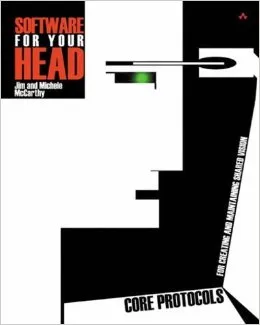Perfecting Code Reviews
I first read about the Core Protocols way back in the early 2000s from Jim & Michele McCarthy's book "Software for your head".

They seem like a sensible set of ideas but probably way too radical for most organizations. I recall we tried adopting the protocols with a team I was leading a few years later but due to other constraints it didn't entirely succeed.
Like all great ideas, it came back to me again while listening to the agile weekly podcast in the early 2010's. I had not thought about them again or had another opportunity to try using them with a new team until recently when talking to a friend about code reviews.
Describing how I do code reviews with another developer, I noticed during the conversation that I had been subconsciously using the Perfection Game in recent sessions. It was in an adapted form to suit the medium but still captured the spirit of the original.
Perfection
The Perfection Game is used as a way to help you improve something you have created. It's at a time when you are asking for help in making something better so that the exercise becomes more collaborative than critical.
Perfect results by thinking and telling one another what you like and what would make the results perfect.
It starts with the creator (or perfectee) presenting something to someone else, asking that person to rate the performance on a scale of 1 to 10. The perfector then lists the things they liked about the performance and offers suggestions for improvement that would take the work from it's current score to a "10". If the perfector can't think of a way to improve the code, they can't withhold points.
Review
Code reviews, by contrast, can be very negative experiences, particularly for less experienced developers presenting code to world-weary, battle-scarred bad-ass senior devs. A more experienced developer looking at the code may be tempted to start straight into statements pretending to be questions - "why did you do it that way?", "that's all wrong, why would you write it like that?", "why didn't you think about...?", "how can that ever work?" etc.
The less experienced developer often have a lot of anxiety about others reading their code and may strongly identify with their code and feel very protective of it, may be hurt by ill considered comments or withdraw from further interactions. There's probably a whole series of articles on using techniques, like the Socratic method, to teach self evaluation of source code.
Steps
Here's how I approach code reviews now using my covert perfection game :)
- Person asks for code review
- Person explains the reason for the change
- Person demonstrates the change
- Person shows diffs between old and new code
During this process I am making notes on things I think could be improved, things which may be wrong, things which they may not have considered. I have a running total in my head of the "score" I think I want to give. At the end, I'll say something like: "I would give that change a 7 out of 10". I would then ask for permission to share my thoughts for how it could be improved (no is always an acceptable answer). Then I would suggest concrete improvements to be made to bring the score up to full marks. This might be a suggestion of how to make something more robust but might be as vague as "that name doesn't convey what you are hoping it would, how can we make it better reflect your intention?"
Conclusion
It seems to be working well and I think I might keep it.
You can see the core protocols at the McCarthy website or download a pdf.